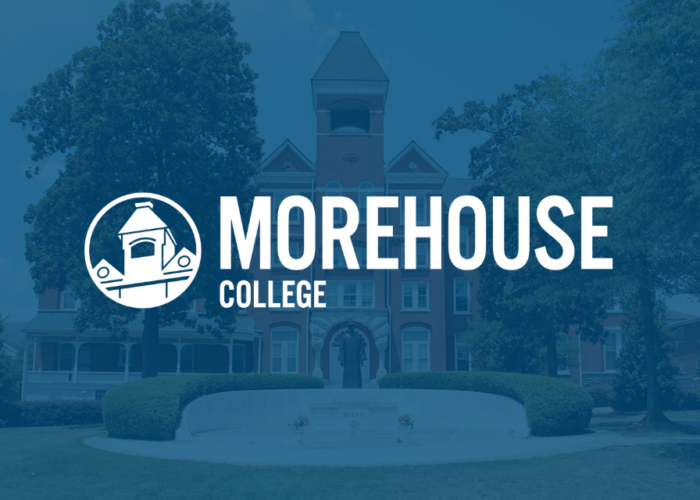While the COVID-19 pandemic isn’t “over,” higher education is breathing a sigh of relief as the college experience has returned to a sense of normalcy. But higher education continues to face challenges: technological preparedness and integration, student recruitment and retention, the changing world of work, inflation, and a tight labor market.
The role of technology in higher education is expanding. Sped up by the COVID-19 pandemic colleges and universities of every size, in every location, are turning to technology to help redefine the way the educational experience is delivered to recruit and retain students. Higher education transformation is critical, especially for small and mid-sized schools, to overcome declining higher ed enrollment, the perceived lack of strong ROI (return on investment), and the competition from better resourced larger schools.
For schools to successfully unlock the value technology can provide in achieving their vision and goals, CIOs must have a seat at the cabinet table and unlock the time necessary to think strategically and innovate. As operational challenges mount and short-staffed organizations manage through employee burnout, focusing on high-value initiatives remains elusive. The critical question is this: What can CIOs do to align IT resources toward their institution’s strategy for success?
To help institutions struggling with this question, Apogee created CIO Advisory Services. David Hinson, Apogee Campus Chief Information Officer, works closely with schools to develop future-proof technology strategies and designs for campus IT service delivery while providing long-term solutions to building an innovative and resilient institution.
“At the end of the day, when you’re working in an institution of higher education, you want to get those students walking across the stage with a degree, becoming alumni, becoming productive members of their communities. We want to deliver the technology that can support that mission. It’s listening to them to see what part of the puzzle higher ed is missing. Sometimes it’s operational talent. Sometimes it’s strategy. And sometimes it’s a mixture of the two.”
–David Hinson, Apogee Campus CIO & MWSU Interim CIO
Listen, Assess, Identify Wins
Missouri Western State University (MWSU) sought guidance from Apogee to unlock time and innovation within its IT department. Located in Saint Joseph, Missouri, MWSU is student-centered, preparing its 3500+ students for a life of excellence through applied learning. MWSU faced daunting new cha=llenges: financial exigency (declared in March 2020), several new leadership transitions, and an aging technological infrastructure.
In July 2021, Hinson stepped in as Interim CIO of MWSU to provide strategic planning prowess to complete numerous institution-wide projects within the technology services department. Hinson became fully immersed in evaluating the MWSU campus infrastructure and IT department to uncover and understand the following top IT problems and to develop a comprehensive plan to address them:
• Aging infrastructure
• Poor Wi-Fi coverage
• Complex procedures to connect to Wi-Fi
• Poor departmental cohesion
• Under- and mis-used systems of accountability
• Poor communications
• Oversubscribed equipment inventories
• Lack of antivirus and endpoint security approach
Hinson’s IT staff quickly separated these challenges into two categories: infrastructure limitations and departmental procedures. Creating a sustainable path to fix the infrastructure problems was a priority for Hinson before he could create bold plans for technological innovation.
“The success of this is really dependent upon how well we can establish a trusting relationship with whomever we’re interfacing. Every institution has a slightly different twist on how they view technology and where it plugs into the organizational structure. Our goal is to quickly get in and listen, assess, and then provide identifiable wins that speak to the institution.”
–David Hinson, Apogee Campus CIO & MWSU Interim CIO
Reorganizing the MWSU IT department, filling staffing gaps, and creating clear procedures for campus operations improved staff relations, while unlocking time and resources to focus on infrastructure innovation.
In Fall 2021, technology services partnered with other departments to roll out a dynamic COVID-19 vaccine incentive program called “Max the Vax.” Students registered and uploaded their CDC vaccine cards to a portal and became eligible to win prizes for participating in the vaccination program.
By the end of Fall 2021, the IT team had also completed a campus parking decal and ticketing system, touchless building entry system, Microsoft Windows 10 migration, and finalized IT department organizational changes.
Solutions Supported by Institutional Needs
Tackling the infrastructural limitations of the campus network was more complex. Students across campus experienced poor Wi-Fi coverage in the residence halls, connectivity issues, and difficulty joining the campus Wi-Fi network.
After discussions with university leadership about the business, cultural, and technology impact of the state of the campus network, along with the campus goals for innovation, Apogee ResNet and Managed Campus Services became a cornerstone of the MWSU technology preparedness strategy.
“Coming in as CIO, you’re entrusted with a number of different pieces of strategy within the institution for which you are now the custodian and caretaker. You walk a line in terms of being an employee of Apogee while being a trusted advocate and partner on the ground with the institution. It’s a tremendous amount of responsibility that you’re entrusted with. But I think it allows you to form better solutions for the institution and to be a better advocate for the campus to make sure it receives the best solution for its unique needs.”
–David Hinson, Apogee Campus CIO & MWSU Interim CIO
Hinson will be at MWSU as Interim CIO until June 2022, ensuring a successful implementation of Apogee ResNet and Managed Campus Services while shepherding the campus through the process of hiring a permanent Chief Information Officer.
As CIOs across higher education grapple with the challenges of balancing operational responsibilities with the expanding role of technology in driving enrollment and retention, CIO Advisory Services by Apogee can offer a way forward to quickly get things under control and implement a strategy and lasting solutions that drive student enrollment, address labor market gaps, and set the institution on a path toward innovation.




